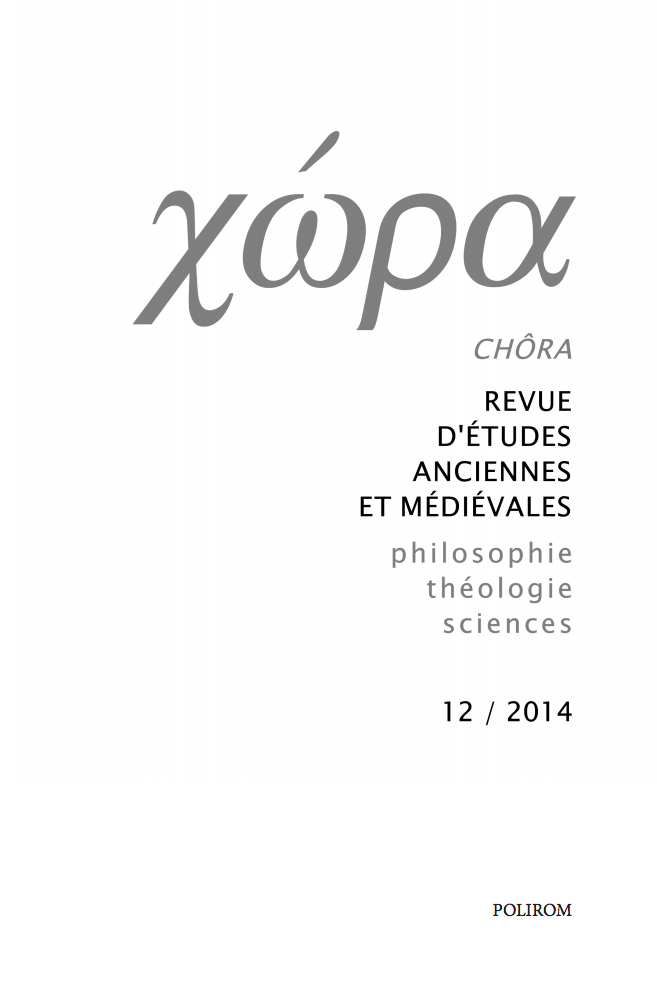Causalité et hiérarchie métaphysique dans
le néoplatonisme : Plotin, Porphyre, Jamblique
Causalité et hiérarchie métaphysique dans
le néoplatonisme : Plotin, Porphyre, Jamblique
Author(s): Riccardo ChiaradonnaSubject(s): Philosophy
Published by: EDITURA POLIROM S.A.
Summary/Abstract: The first part of this article focuses on Plotinus’ account of demiurgic causation in treatise VI, 7 [38]. Plotinus’ position is based on two assumptions: 1) the sensible cosmos is rationally ordered and its order depends on an intelligible prior cause; 2) this order does not reflect any rational design on the part of the cause, since the cause has no reasoning or calculation in it. This view is spelled out against the background of Plotinus’ gradualist metaphysics (theory of the “double activity”) and with respect to Plotinus’ philosophical sources (Plato’s Timaeus and Aristotle’s Metaphysics). The second part of the article focuses on Porphyry, on the anonymous commentary on Plato’s Parmenides and on Iamblichus. Unlike Plotinus, Porphyry has no hesitation in employing concepts drawn from Aristotle’s logic as a resource for expressing his metaphysical theories. This approach can interestingly be set in parallel with that of the anonymous commentary to Plato’s Parmenides assigned to Porphyry by Pierre Hadot (see In Parm., XI, 5‑19). A hitherto unnoticed parallel between these lines and Porphyry’s view on the divine hierarchy criticised in Iamblichus’ Response to Porphyry (I, 4, p. 7, 21‑11, 4, Saffrey – Segonds) provides a new argument in support of Porphyry’s authorship of the Parmenides commentary.
Journal: Chôra. Revue d'études anciennes et médiévales
- Issue Year: 2014
- Issue No: 12
- Page Range: 67-85
- Page Count: 19
- Language: French
- Content File-PDF

